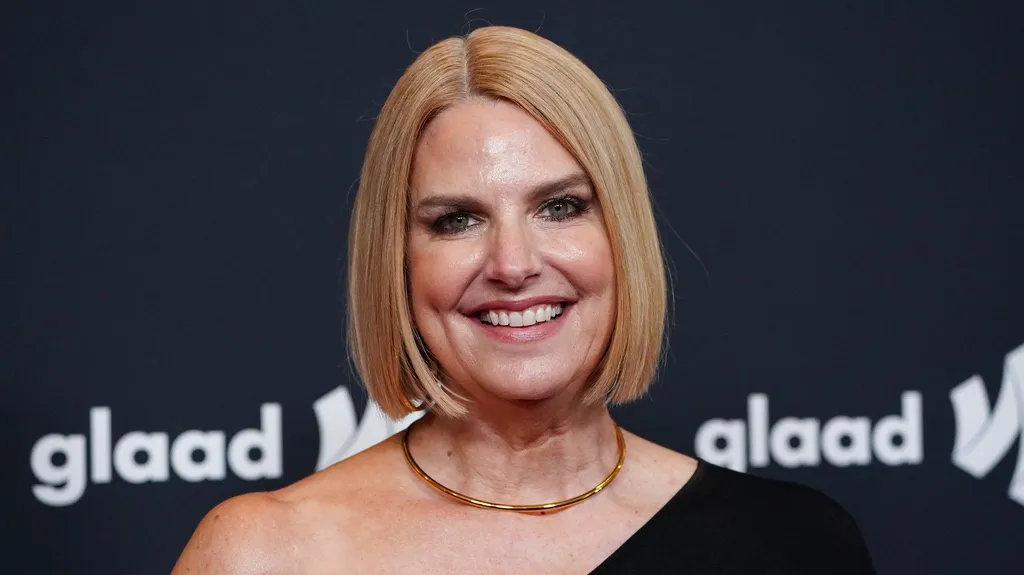August 9, 2007
Cambridge senate race heating up
David Foucher READ TIME: 7 MIN.
When it comes to support for LGBT issues, the winner of the special election to succeed former state senator Jarrett Barrios, who vacated his Middlesex, Suffolk and Essex District seat in July, will have big shoes to fill. So who among the candidates is best suited to the task?
Barrios, the first openly gay man and first Latino ever elected to the Senate, was long a forceful advocate for the community, the most recent example of which was his leadership on the defeat of the anti-gay marriage amendment over the past three-plus years. "Jarrett's voice is probably not replaceable," said longtime LGBT activist and Cambridge resident Sue Hyde. "And I don't expect anyone to be ... able to do what Jarrett did for us." What she does expect, however, is that the district's next senator "will be as strong a leader and as strong an advocate and as forthright a supporter of LGBT people as he or she can be."
Thus far it appears that the four candidates vying in the Sept. 11 Democratic primary - defense attorney Tim Flaherty, Cambridge City Councilor Anthony Galluccio, Chelsea City Councilor Paul Nowicki and human rights lawyer Jeff Ross - want to do that (some more than others, perhaps). For starters, having met with each of the candidates early on, MassEquality will likely not be endorsing in the race, said Political Director Matt McTighe, since all of the candidates are "strongly pro-equality." There's even an openly gay candidate - Ross - in the mix.
Barrios, who vacated his seat to become the president of the healthcare philanthropy Blue Cross/Blue Shield Foundation, is not backing a candidate in the race. With no Republican candidates competing for the seat, the Democratic primary will effectively decide the race in advance of the Oct. 9 general election.
The Middlesex, Suffolk and Essex District is an economically, socially and ethnically diverse district that includes Cambridge, Allston/Brighton, Charlestown, Chelsea, Everett, Revere, Saugus and Somerville. The contenders for the seat appeared at a candidate forum at the MGH Building at the Charlestown Navy Yard on Aug. 6. Much of the discussion focused on issues specific to Charlestown. The forum also included Cambridge activist Laurie Leyshon, who has since been disqualified from the ballot due to an insufficient number of certified signatures. With the exception of Leyshon, who made passing mention of her volunteer efforts on marriage equality, LGBT issues were not discussed at the forum (but they'll probably be raised at a forum sponsored by the Progressive Democrats of Cambridge at the Cambridge Masonic Hall on Aug. 16). But in recent interviews with Bay Windows, the candidates eagerly discussed their campaigns and the ways in which they'd support the LGBT community if elected.
Flaherty, for instance, knew our phone number before we knew his. The former Norfolk County prosecutor was the only candidate to proactively peddle his campaign to Bay Windows and well before Barrios gave his farewell address on the Senate floor on July 2. Flaherty, who lost a bid for Middlesex District Attorney in 1998 and who is the son of former House Speaker Charlie Flaherty, says that his priorities as a state senator would be affordable housing, access to healthcare, public safety, and economic issues like property tax relief and job creation. But the lifelong Cantabrigian is quick to not that he has other areas of interest as a legislator. "I could see myself as a very persuasive voice on, for instance, issues of equality," he says. He's hopeful that the marriage equality debate is done, but should another attempt be made to put an anti-gay marriage amendment on the ballot, Flaherty says he'd be a strong advocate against it. "That would be one of the things that's exciting to me [as a state senator] because it's a real issue that speaks to the good of society," says Flaherty. "And understanding that issue and understanding the economic equality and the fairness of it is something I think I would be very persuasive on, because I don't look like the type of person that would stand up and fight for those issues. I think it would catch some people's attention." Flaherty cites the repeal of the 1913 law that bars most non-resident same-sex couples as the next battlefront in the marriage battle, a move he would support. "It's antiquated," he says of the law.
Like his four competitors in the race, Flaherty was unfamiliar with state Rep. Carl Sciortino's bill to add gender identity and expression to the protected classes in the state's public accommodations and hate crimes statutes, and thus lent more tentative support. "I haven't read the legislation itself," Flaherty admitted when asked about it. "But I'm familiar with the hate crimes statutes as a former prosecutor and I don't see any reason why there should be an objection to the inclusion of that definition in the hate crimes statute." If a person is being targeted as a crime victim based on "their identification, sexual orientation," he added, "why wouldn't transgender [people] fall under that [protection]? It seems like an obvious loophole that should be closed."
Of all the candidates in the race, Galluccio, a seven-term city councilor and former Cambridge mayor, has the most tangible record of support for LGBT rights, which he's quick to point out during an interview and on his campaign website, where a good chunk of his civil rights page details his efforts on behalf of the LGBT community while in office. In 2000, for instance, one of his first acts after being elected mayor by his fellow counselors was to come out in support of the city's domestic partner ordinance, when a right-wing organization filed suit to have it overturned. Galluccio joined a unanimous City Council vote to defend the ordinance against the suit; he also spoke out at a rally decrying the attack on the ordinance, which was ultimately overturned. Asked whether he'd support Sciortino's transgender-inclusion bill, Galluccio responds that he would. "I would just point to my own record in Cambridge, where I have voted for and cosponsored our own city ordinance which prevents discrimination in the workplace based on sexual orientation or gender, including transgender [people]," he adds. "Years ago." The council passed the ordinance unanimously in 1997.
Like all of the candidates, Galluccio emphasized the need to continue to defend marriage equality on Beacon Hill. But unlike his competitors, Gallucccio, who has championed youth programs and issues in Cambridge, also emphasized his support for LGBT youth. "I think young people that are openly gay face enormous challenges and need to be supported in school settings," said Galluccio. "Just like children who come from one-parent families or who are going through grieving situations or come from other countries." The "prejudice and harassment that goes on in our school settings with either openly gay students or students who live in households with openly gay parents," said Galluccio, "is incredible."
Galluccio has run for the seat two times before. He lost to Barrios when the seat was open in 2002. He tried again in 2006, as Barrios campaigned for Middlesex D.A. But Galluccio ended his campaign when the incumbent abruptly bowed out of the D.A.'s race and announced he'd seek re-election to his Senate seat. His withdrawal from the race, in May 2006, came just after a Boston Municipal Court magistrate cleared Galluccio of allegations that he was under the influence of alcohol when he caused a four-car accident in Boston in December 2005. The decision was preceded by weeks of negative publicity for Galluccio as he faced questions about the accident.
Nowicki, an eight-term at-large councilor in Chelsea, spoke in broader terms than any of his fellow contenders on LGBT issues. "For me, it's pretty simple," says Nowicki, who has also four terms as president of the Chelsea City Council. "I would never, ever support any piece of legislation that would violate one person's civil rights. It's just that plain and simple." Nowicki has a similar statement posted on the issues page of his website. His guiding principal as a public official is to "always advocate that everyone should be treated equally," said Nowicki. As a state senator he pledged to maintain an "open-door policy to sit down with each and every organization to make sure that we protect everybody's civil rights."
Nowicki declined to take a position on the transgender-inclusion bill as he has not read it. "I don't want to comment on something that I haven't fully digested," he said.
When it comes to LGBT credibility, Ross has an obvious advantage since he's the only openly gay candidate in the race, and of course, it'd be nice to see a gay person succeed Barrios (that said, Ross's campaign manager, Nathan Spencer, stretched things a tad when he referred to the seat as "a gay seat" in conversation with us prior to the Charlestown forum). As Ross points out when discussing his support for the transgender nondiscrimination legislation, there's value in being able to speak to an issue from a personal perspective. Said Ross, "I know that once people get to know me and I can sit down and talk about my own experiences that that will have more impact" in persuading colleagues on the issue, "because when they know you and know what you've gone through and understand from a personal perspective there's more impact ... if you can bring experience to the table. And I think that's valuable."
Beyond being a gay man, Ross, who moved to Cambridge from Boston only recently - he won't say how recently - has another thing in common with Barrios: As a human rights attorney he has been very involved in immigration issues, which may garner him support from the Latino community, which has lost a staunch advocate with Barrios' departure from the legislature.
But unlike Barrios, who had a history of gay political activism prior to being elected to the legislature, Ross's gay portfolio seems pretty slim. His website makes mention of his support for marriage equality and a vague reference to his efforts "to temper the Republican dissemination of hateful anti-gay propaganda" which he also mentions in an interview. That's about it.
Hyde would like to know more about Ross. Though she acknowledges "a natural affinity among LGBT people for candidates and office holders who share with us aspects of our identities," she also notes that "on its own a gay identity expressed by a candidate does not make that candidate necessarily the best over everybody else.
"So I look forward to hearing from Jeff Ross why he would be the best representative for LGBT people on certain issues in our district."
David Foucher is the CEO of the EDGE Media Network and Pride Labs LLC, is a member of the National Lesbian & Gay Journalist Association, and is accredited with the Online Society of Film Critics. David lives with his daughter in Dedham MA.







